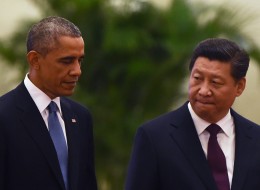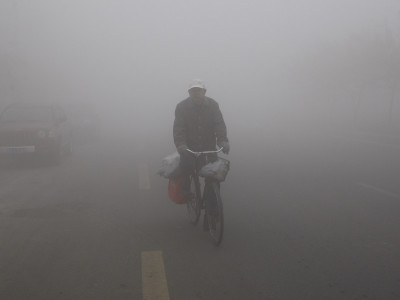China
A Ray of Hope [Breaking News]
President Obama and Chinese President Xi Jinping announced a major deal on climate change this morning. As summarized by the Washington Post, China, the world’s biggest emitter of greenhouse gases, pledged in the far-reaching agreement to cap its rapidly growing carbon emissions by 2030, or earlier if possible. It also set a daunting goal of …
Continue reading “A Ray of Hope [Breaking News]”
CONTINUE READINGChina’s Pollution Challenge
Can a new law save China’s environment?
Benjamin van Rooij and I published the following in the New York Times op-ed page today. In short, it is about the challenges the new Environmental Protection Law will face in practice and the critical reforms needed to overcome these challenges: China’s national legislature has adopted sweeping changes to the country’s Environmental Protection Law, revisions …
Continue reading “China’s Pollution Challenge”
CONTINUE READINGAir Pollution in China Shuts Down City of 11 Million
The airpocalypse is back. What should Chinese leaders do about it?
On Sunday, the start of the heating season in northern China brought the “airpocalypse” back with a vengeance (although some might say it never left). Harbin, the capital of Heilongjiang Province and home to 11 million people, registered fine particulate (PM2.5) pollution levels beyond 500 on the Chinese Air Quality Index, which is considered hazardous …
Continue reading “Air Pollution in China Shuts Down City of 11 Million”
CONTINUE READINGCan We Replace HFCs?
What was supposed to be an informal meeting between President Obama and Chinese President Xi Jinping has yielded something substantive: an agreement to include hydrofluorocarbons (HFCs) under the Montreal Protocol, and thus an agreement by both nations to reduce their use: As some environmental analysts had hoped, President Obama and President Xi Jinping of China found room to maneuver on global warming …
Continue reading “Can We Replace HFCs?”
CONTINUE READINGChina’s New Environmental Courts
Pollution in China has been much in the news recently, from premature deaths caused by air pollution to news of thousands of dead pigs found in a Shanghai river. Could law help solve China’s environmental problems? My recent post on China Dialogue takes a look at what China’s new environmental courts have been able to accomplish so far.
CONTINUE READINGClimate Adaptation and the Two Chinas (and the Two Brazils, and the Two Indias….)
The world used to be divided into developed countries and developing countries, but a third group has now taken the stage: emerging economies like China, India, and Brazil that are growing very rapidly but haven’t yet attained developed country status. But development in these countries is uneven. In China, for example, there has been explosive …
Continue reading “Climate Adaptation and the Two Chinas (and the Two Brazils, and the Two Indias….)”
CONTINUE READINGDeadly spike in Beijing’s air pollution
This graph shows recent air quality monitoring data (PM 2.5) from the U.S. Embassy in Beijing. As the New York Times noted, this spike—seen as a thick haze in the city—has been described as “postapocalyptic.” Thanks in no small part to the Clean Air Act, we have thus far avoided the need to walk around …
Continue reading “Deadly spike in Beijing’s air pollution”
CONTINUE READINGCan “Social Risk Assessment” protect China’s environment?
I’ve just returned from a month in Qingdao, China, so this story in the New York Times caught my eye. China’s new leadership has announced that it will require a social risk assessment before any major industrial project can be begun. The idea is to forestall the increasingly violent environmental protests that have caused the …
Continue reading “Can “Social Risk Assessment” protect China’s environment?”
CONTINUE READINGSo Much for THAT Excuse: China Starts a Cap-and-Trade Program
If there is a somewhat credible reason for the United States not to embark on climate legislation, it is that other major emitters — particularly China — are not doing the same. I don’t buy it, because China is a much poorer country than the United States is and because the West has received the …
Continue reading “So Much for THAT Excuse: China Starts a Cap-and-Trade Program”
CONTINUE READINGWill Driving a Prius Save the Planet?
John Voelcker says no, and he is right (h/t TPM). In fact, he is so clearly right that I am not sure why one would write this piece. Indeed, I’m a little suspicious of the hidden agenda here. Voelcker points out five things that make driving a Prius Not The Savior Of Planet Earth. They …
Continue reading “Will Driving a Prius Save the Planet?”
CONTINUE READING





